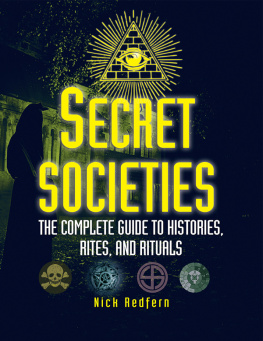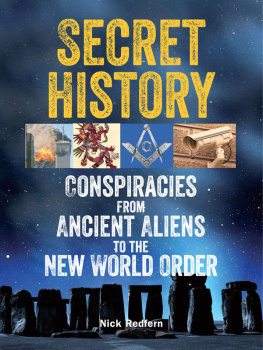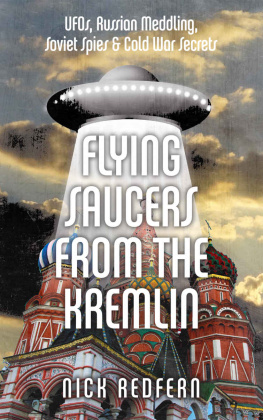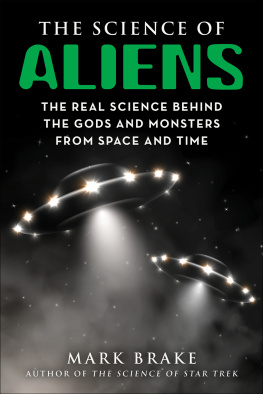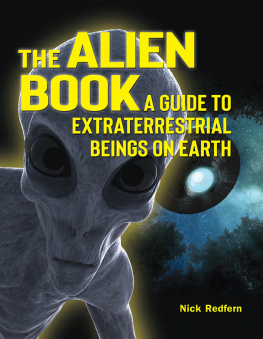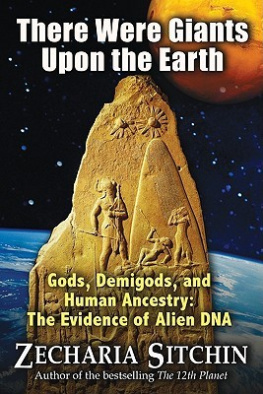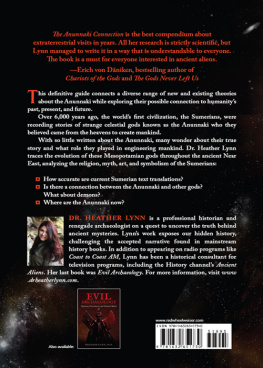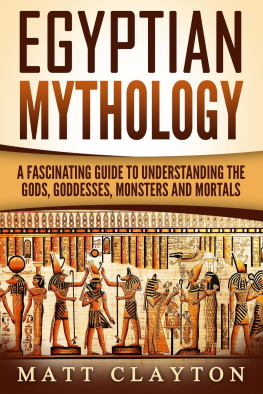IMMORTALITY OF THE GODS
IMMORTALITY OF THE GODS
Legends, Mysteries, and the Alien Connection to Eternal Life
NICK REDFERN

Copyright 2017 by Nick Redfern
All rights reserved under the Pan-American and International Copyright Conventions. This book may not be reproduced, in whole or in part, in any form or by any means electronic or mechanical, including photocopying, recording, or by any information storage and retrieval system now known or hereafter invented, without written permission from the publisher, The Career Press.
IMMORTALITY OF THE GODS
EDITED BY ROGER SHEETY
TYPESET BY PERFECTYPE, NASHVILLE, TENN.
Cover illustration by vril8
Printed in the U.S.A.
To order this title, please call toll-free 1-800-CAREER-1 (NJ and Canada: 201-848-0310) to order using VISA or MasterCard, or for further information on books from Career Press.

The Career Press, Inc.
12 Parish Drive
Wayne, NJ 07470
www.careerpress.com
Library of Congress Cataloging-in-Publication Data
CIP Data Available Upon Request.
ACKNOWLEDGMENTS
I would like to offer my very sincere thanks and deep appreciation to everyone at New Page Books and Career Press, particularly Michael Pye, Laurie Kelly-Pye, Jeff Piasky, Lauren Manoy, Roger Sheety, and Adam Schwartz, and to all the staff at Warwick Associates for their fine promotion and publicity campaigns. And a special thank-you goes out to my literary agent and friend, Lisa Hagan, without whom you would not be reading these words.
CONTENTS
INTRODUCTION
I mmortality: it is perhaps the one thing, more than any other, that all of us crave. Each and every one of us is on a time limit, and were all too aware of that fact. Today, in the United States, the average life expectancy is 78.7 years. In the United Kingdom its 81. Japans citizens can expect to reach 83. In January 2015, the UKs Telegraph newspaper reported the following: According to estimates published by the Office for National Statistics the average life expectancy for newborn girls in the UK is on course to reach just under 97 years and four months within just over two decades (Bingham, 2015). In view of all the above, it will very likely not be too long before it becomes entirely normal for humans to reach a century, and maybe even a bit more than that.
As impressive as all of that certainly sounds, what of the possibility of not just living for a century, but even for more than a few millennia? Even more incredible, try and imagine the concept of never dying, as in ever. Is such a seemingly incredible thing really possible? It may not only be feasible, it may very well have been achieved in the distant past. We are talking about ancient extraterrestrials having uncovered the secrets behind slowing, and ultimately completely stopping, the process of aging.Certainly, history is filled with accounts of fantastic beings, legendary gods, and half-human/half-alien entities, such as demigods, who are reputed to have had extraordinarily long life spans. Today, stories of such renowned figures are largely dismissed as nothing more than the stuff of legend, folklore, and mythology. But, what if thats not actually the case at all? What if the accounts are all too amazingly real? If so, who were the all-powerful extraterrestrials that tapped into the secrets of immortality? Did they, thousands of years ago, choose to share those same secrets with certain, select humans whoas a resultspectacularly succeeded in beating the Grim Reaper at his own game? These and many more are the questions posed in Immortality of the Gods. The highlights include:
The controversial story of the Anunnaki, the legendary space-faring entities that first visited the Earth hundreds of thousands of years ago and whousing advanced genetics-based technologyeffectively created the human race. Gene-splicing, interspecies reproduction, and cell manipulation all ensured the creation of early humans, who ultimately became slaves to their extraterrestrial masters. Whereas the Anunnaki had life spans of hundreds of thousands years, early humansknown as the Adamuwere deliberately engineered to have extremely short life spans. Namely, the depressingly short 70 or so years. Indeed, the Bible tells us: The days of our years are three score years and ten; and if by reason of strength they be four score years, yet is their strength labor and sorrow; for it is soon cut off, and we fly away (Psalm 90, 2012). On occasion, however, and as will be revealed, the Anunnaki bestowed the secrets of extensive longevity on certain humans, including some of the most famous figures in the Bible. Zecharia Sitchin, who dug very deeply into the history of the Anunnaki, came to believe that the Anunnaki in their original form may have had life spans approximately the length of ours. However, he also concluded that the Anunnaki learned the secrets of how to prevent cell degradation, how to slow down the aging process, and how to almost stop it completely. Perhaps, one day, we will follow in their path.
The Bible also informs us that Adam fathered a child at the impressive age of 130, a son who he named Seth. On top of that, Adam had no intention of shuffling off this mortal coil now that Seth was on the scene. In fact, he is said to have lived for another 800 years and fathered even more children. Seth was noted for his longevity, too. Following in the footsteps of his father, he became a father to Enosh at the age of 105 and lived to in excess of 800. Seth lived even longer: to the age of 912. Then theres the matter of Methuselah, who lived to the stunning age of 969, almost one millennium, which is both shocking and jaw-dropping in equal measures. All of this provokes an important question, one which is highly relevant to the story this book tells: how is it that so many Old Testament characters lived close to one thousand years? Immortality of the Gods reveals the facts surrounding the stories of the likes of Methuselah, Noah, and Seth, and demonstrates their deep connections to the gods. In reality, those gods were highly advanced ETsthe aforementioned Anunnakiwhose science, medicine, and technology ensured that those famous, biblical figures outlived just about everyone else. We are talking about the likes of the Nephilim, described in the Bible as the offspring of the sons of God (actually the Anunnaki) and the daughters of men.
The Epic of Gilgamesh, a renowned saga penned around 4,000 BC. It describes the story and life of Gilgamesh of the title. He was a mighty Sumerian ruler who held sway over Uruk, a city located in ancient Sumer. Gilgamesh was almost certainly part-human and part-Anunnaki. Or, to use the correct term, one of those aforementioned demigods; one who was human, but who also had a genetic connection to the gods from the stars. Like the Anunnaki themselves, Gilgamesh was a towering and imposing figure, possibly even close to an astonishing 16 feet in heightone of the legendary giants as described in the pages of the Bible. As for his life span, it was certainly extensive: we know that Gilgamesh ruled over the people of Uruk for close to 130 years. That he was not pure Anunnaki, however, ensured that Gilgamesh was not destined for literal life-unending. But, this did not prevent him from trying to seek out the secrets of immortality. He went on a quest to find a fabled character, Utnapishtim, who had achieved Gilgameshs ultimate goal: everlasting life. The secrets allegedly lay in a mysterious plant that had incredible powers of rejuvenation. For Gilgamesh, unfortunately, the secrets eluded him. That he reigned for around 130 years, however, is a good indicator he was of Anunnaki blood.
Next page

